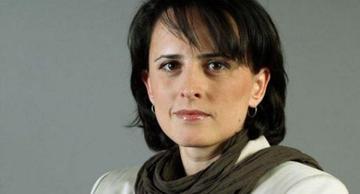
The car of Bulgarian journalist Genka Shikerova, the co-host of the morning talk show on Sofia-based privately owned national bTV television channel, was set on fire on April 2nd. This was a déjà vu for the journalist, whose previous vehicle was also set alight in an identical incident less than seven months ago.
Police are investigating the case, whose perpetrators have not been immediately identified.
Shikerova believes it was again a premeditated arson attack, whose perpetrator splashed enough inflammable liquid onto the vehicle so that it would burn out completely. The car was parked outside the journalist's Sofia apartment building and she was alerted about the incident by neighbours.
"I feel bad," Shikerova, said on Wednesday morning, while noting also that what mattered after all was that no one in her family was hurt.
This was a deliberate arson attack, probably designed to intimidate the journalist, Sofia-based online news portal Mediapool.bg reported.
"At this point, there is no firm evidence confirming that this is a case of an intentional arson attack, because the car is totally burnt out," bTV quoted Sofia District Police Directorate head Ivaylo Spiridonov as saying.
He also admitted that despite all measures taken by police following the first identical case on September 16th 2013 no progress has been made and the perpetrators of that attack remain unknown.
In comments for Sofia-based privately owned national Nova TV channel on Wednesday morning, Shikerova said that the probe into that previous incident had been actually closed due to lack of evidence.
Many media watchdogs condemned the September assault as an attack on freedom of expression in the country. Reporters Without Borders cited it as one of the reasons for Bulgaria's further fall to the 100th position in the organisation's annual World Press Freedom Index, published in February.
This publication has been produced with the assistance of the European Union. The contents of this publication are the sole responsibility of Osservatorio Balcani e Caucaso and its partners and can in no way be taken to reflect the views of the European Union. The project's page: Safety Net for European Journalists.A Transnational Support Network for Media Freedom in Italy and South-east Europe.

 Bulgarian journalist's car set on fire… again
Bulgarian journalist's car set on fire… again




 All the contents on the Osservatorio Balcani e Caucaso website are distributed with a
All the contents on the Osservatorio Balcani e Caucaso website are distributed with a 